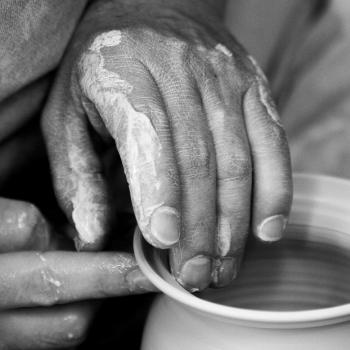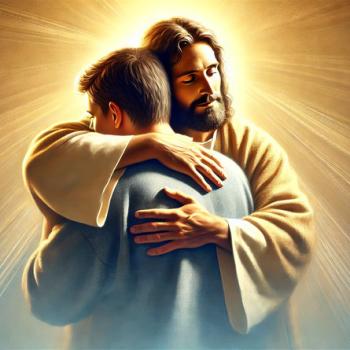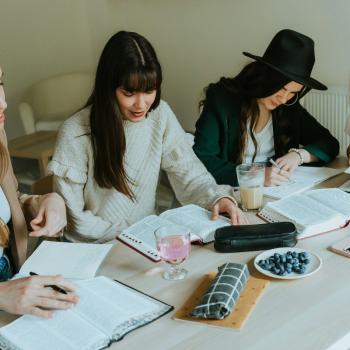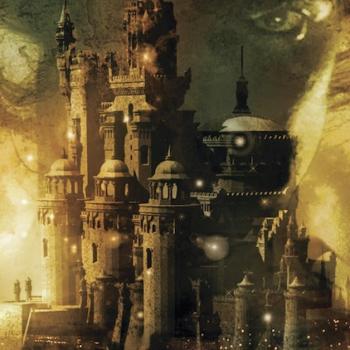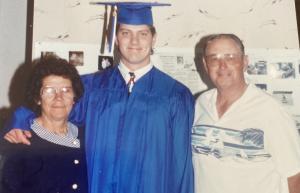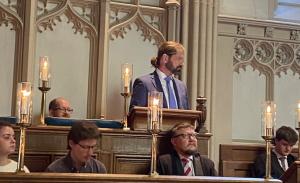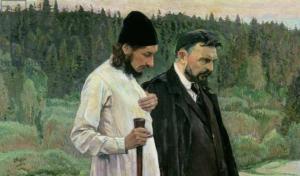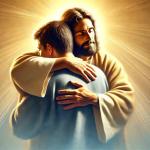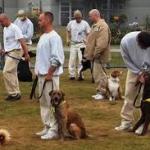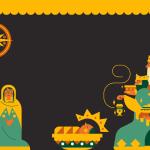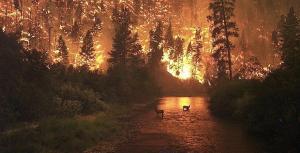
While traveling this week, I read Elizabeth Kolbert’s Sixth Extinction. The book, in my opinion, is worth the hype and Pulitzer that it has collected. It’s got me thinking about a blogpost I wrote for my seminary in the early days of the pandemic. I’m reposting it here as an invitation to contemplate grief and hope.
I also want to note, as I approach a year of The Diagonal Way, and 100 posts on this page graciously hosted by the good people of Patheos, that I’m going to slow down just a bit. With a research leave this fall, I’m noticing a need to let some ideas sit in the incubator a bit before turning them loose in the wild. Thanks to all who are reading along. I promise to do my best to keep offering content worth a few minutes of your morning.
***
Can We Just Grieve Together?
Perhaps the first thing is to grieve. Before we get angry about the death of coral reefs, the politics that allow the Amazon forests to burn, the economic pressures that are aggravating the coronavirus epidemic. Before we organize to pressure governments and businesses to think about the future and not just the next election or capital gains. Perhaps the first thing is just to grieve.
The God of Israel gave humans the task of governing creation, acting as “trustees,” as the Voice’s translation of Genesis puts it. And we are watching God’s creation falter, fail, and die at a rate that simply has no comparison since the arrival of bipedal tool-wielders back in the middle Paleolithic.
What is Good Religion?
Saint James simplifies “good religion” down to the tasks of looking after orphans and widows and resisting the pollution of the world. You don’t have to squint too hard to see those koalas in the Australian inferno as orphaned, the endangered orchids of the Amazon as widowed, and the coal-ash laden waterways of Missouri as “polluted by the world.”
In fact, even before squinting in the direction of koalas and orchids, we have to face a hard reality here: the most vulnerable humans are the most affected by dirty air, polluted water, and harsh agricultural practices. Communal habits bigger than you and me, our generations, or the generations that came before have brought us to such a global emergency that we must now admit that we have failed — not in every case, but still entirely—at good religion. We have been poor trustees of the lands and waters below and the skies above. And that, according to the first chapter of the Bible, is the whole reason we’re here.
How Can We Even Hope?
And once we’ve grieved, what then? What does hope look like, when any efforts you and I can make are not going to bring back the 25,000 dead koalas, help slow down the growth of Trash Island in the Pacific, or convince governments to protect biodiverse regions from the sort of capitalism that reigns unchecked in so much of the world?
How to wait for the Messiah
Last spring I met a remarkable young Rabbi from Chicago named Aryeh Bernstein. I attended a seminar he was offering on the links between Torah and ecological justice that guide his personal habits and those of his community. Rabbi Bernstein told us that people often ask him why he bothers to eat, dress, shop, and work in such a counter cultural way. His answer somehow filled me with grief and hope at the same time, and I don’t imagine I’ll ever forget it. I’ll paraphrase it:
I realize that the most austere of personal habits won’t slow down the climate crisis. Going vegan won’t change our global addiction to beef, riding my bike won’t change our addiction to fossil fuels. Even if we all do it together, it will be too little too late. I don’t do these things to affect change at all actually. I live the way I live for two reasons. First, so that I can create community with others who care for creation. So I can learn from them and come to love them and to love the world through them. Second, so that when the Messiah comes and God acts to redeem creation, I’ll already have the habits in place and can share in the work that will, in fact, change something.
Grief and hope in a time of tragedy
We have taken the stage at the moment when creation’s play turns into tragedy. And yet tragedies are not without hope. We, as Saint Paul reminds us, do not pass through a suffering world as those without hope. We can find one another, and discern together the habits of creation care, of good religion, so that when God acts and the Messiah comes, we’ll be ready. (When he comes back, as Christians say. I like to think that the Messiah arrives, Jews will say, “He’s here!” And Christians will say “he’s back!” And then we’ll look at each other and shrug, maybe laugh, and then go off and join him in the work of giving birth to the new creation.)
The rabbi’s words made me think of the parable of the foolish and the wise bridesmaids. There was so little to do, during the long night. And yet the ones who practiced vigilance, who “stayed awake,” were ready when the wait was finally over. His words made me want to find some friends and start experimenting with ways of staying awake during the long night of delay. Ways of faithfully practicing both grief and hope.


